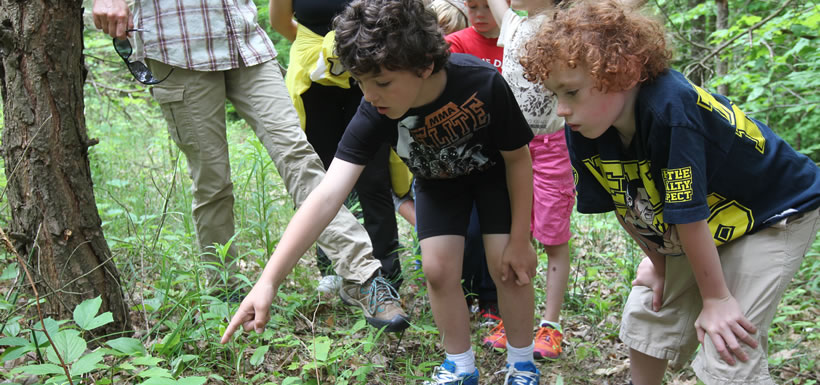"Ironically, the detachment of education from the physical world not only coincided with the dramatic rise in life- threatening childhood obesity but also with a growing body of evidence that links physical exercise and experience in nature to mental acuity and concentration"
- (page 2,Richard Louv)
 http://www.fairchildgarden.org/Articles/id/777/read/Society-too-disconnected-with-nature/
http://www.fairchildgarden.org/Articles/id/777/read/Society-too-disconnected-with-nature/
"Studies suggest that nature may be useful as a therapy for Attention Deficit Hyperactivity Disorder (ADHD), used with or, when appropriate, even replacing medications or behavioral therapies." -(page 2,Richard Louv)
These quotes mixed with my own personal experiences raising my daughter have brought to my attention the need for people to spend time outdoors and be in-sync with nature.
I have a five year old with a ton of energy, who is VERY smart and a true leader in her class. The problem is that she has a lot of trouble staying focused for long periods of time, and consequently, gets distracted in class and ends up talking when she isn't suppose to, or something along those lines.
She never gets in trouble for anything serious, but every now and then i'll get a note sent home from her teacher that she was "shouting out" or "talking when the teacher was talking, and not staying on task."
With that being said, I am aware that her school only allows the kindergartners to go outside for about 10 minutes a day IF THAT. When I found this out I KNEW that it was going to be a problem for my daughter with her attention span.
http://topnews.ae/content/210780-adhd-kids-linked-their-age-difference
ADHD - "Children with the syndrome are restless and have trouble paying attention, listening, following directions, and focusing on tasks." (page 3)
http://consciouslifenews.com/3-powerful-natural-remedies-adhd-attention-deficit-hyperactivity-disorder/
The restorative Environment - "Even without corroborating evidence or institutional help, many parents notice significant changes in their children's stress levels and hyperactivity when they spend time outside." (page 4)
http://www.natureconservancy.ca/en/what-you-can-do/conservation-volunteers/helping-children-one-nature.html
When I was preparing my five year old for kindergarten this past summer, I noticed that the only way I could get her to stay focused was by allowing her to take breaks outside. I realized very quickly that pressuring her to sit down for hours and focus without a break did not work for her at all.
Nature's Ritalin - "By bolstering children's attention resources, green spaces may enable children to think more clearly and cope more effectively with life stress." (page 7)
I noticed that she would use this free time outdoors to: ride her bike, take a walk, learn to roller blade, chase butterflies, catch hermit crabs, play in the mud in the backyard, spray her uncle with the hose outside etc. I realized that this break from academics helped her to refocus and be able to learn what she needed academically. It may have taken me longer to teach her, but in reality, I needed the break as much as she did.
http://wickedmuddy.com/2012/10/18/the-little-wickedmuddy-com-crew/
"In 2000, Wells conducted a study that found that being close to nature, in general, helps boost a child's attention span. When children's cognitive functioning was compared before and after they moved from poor- to better- quality housing adjacent to natural, green spaces. Profound differences emerged in their attention capacities even when the effects of the improved housing were taken into account," according to wells. (Page 7)
http://www.natureexplore.org/certified/blackbearolc.cfm
At the time, I had no idea that allowing my daughter to go outside and take breaks from learning was, in fact, a proven technique for helping children focus better. Now that I have read this book and all the facts, I know without a doubt that this is a successful strategy that schools should use when teaching children, especially those who suffer from ADHD.
http://escobarmg.pbworks.com/w/page/40200835/Photos









